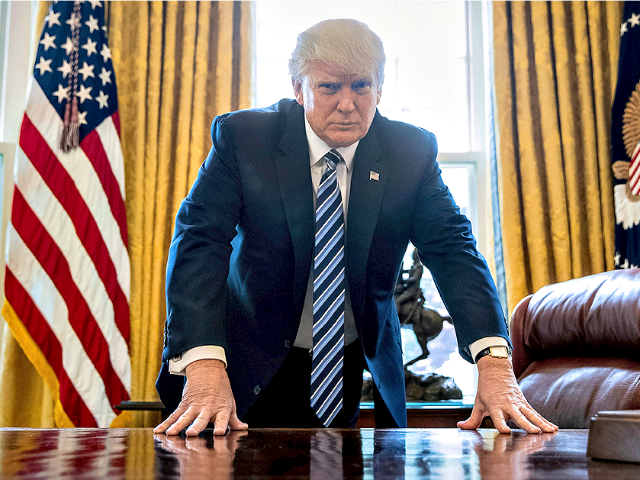Gene Hamilton, a former counselor to the attorney general in the Trump administration’s Department of Justice, contended Friday that former President Donald Trump is protected by both the Presidential Records Act (PRA) and the U.S. Consitution in the classified documents case brought by President Joe Biden’s Department of Justice.
While he sees flaws in all four of the indictments brought against the 45th president, he zoned in one of the federal cases, in which Special Counsel Jack Smith, appointed by Attorney General Merrick Garland, alleges Trump took classified documents to Mar-a-Lago at the culmination of his presidency.
Hamilton argued that the Presidential Records Act allows for Trump or any other president to designate whatever papers are personal, and therefore, he can take any papers deemed personal and not later be charged based upon those decisions.
“You hear a lot of arguments, and you see a lot of arguments on social media, and other commentators have rightly pointed out that under the Presidential Records Act, the President gets to decide which records are his and which ones aren’t,” noting he agrees “with that principle of statutory interpretation.”
While Hamilton asserts Trump is protected by the PRA, he also contends the U.S. Constitution does not grant Congress the power to claim there are any documents in a president’s or former president’s possession that do not automatically belong to him.
“If you buy the argument that the Presidential Records Act is even constitutional, so where in the Constitution does it say, ‘Oh, and by the way, we also get to decide which papers the President has are his and which ones are not?'” he said.
“And I think for that reason, any interpretation or application of the Presidential Records Act that says that ‘Oh, Donald Trump didn’t have authorized possession of these papers, of these records, so therefore he can be prosecuted for mishandling them,’ is faulty, it’s unconstitutional,” he contended.
Hamilton added the remedy should not be handled through the courts but politically, meaning through elections or impeachment proceedings:
If someone wants some remedy, well, the remedy then is a political remedy. The remedy is either impeachment or just not supporting the person in the next election. But the notion that you can bring a political prosecution against the President of the United States for deciding which papers are his and which records are his that he took when he was the President of the United States with him, rightly, I mean, that’s his decision. That is his choice; Congress doesn’t get to make that decision for him, and so for that reason, especially, I think that case has a lot of problems of its own.
The case is the United States v. Trump, No. 9:23-cr-80101-AMC, in the U.S. District Court for the Southern District of Florida.

COMMENTS
Please let us know if you're having issues with commenting.